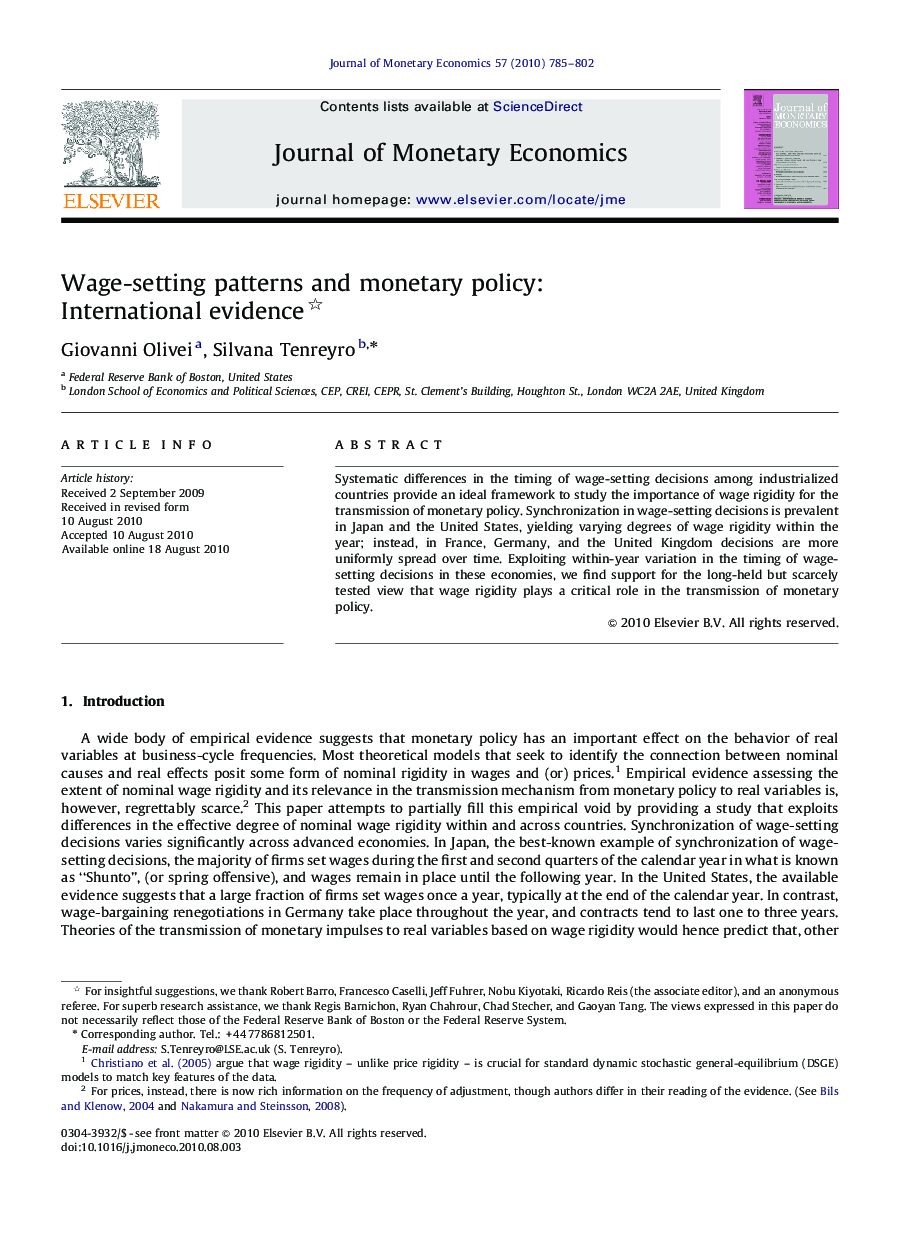| Article ID | Journal | Published Year | Pages | File Type |
|---|---|---|---|---|
| 967029 | Journal of Monetary Economics | 2010 | 18 Pages |
Abstract
Systematic differences in the timing of wage-setting decisions among industrialized countries provide an ideal framework to study the importance of wage rigidity for the transmission of monetary policy. Synchronization in wage-setting decisions is prevalent in Japan and the United States, yielding varying degrees of wage rigidity within the year; instead, in France, Germany, and the United Kingdom decisions are more uniformly spread over time. Exploiting within-year variation in the timing of wage-setting decisions in these economies, we find support for the long-held but scarcely tested view that wage rigidity plays a critical role in the transmission of monetary policy.
Related Topics
Social Sciences and Humanities
Economics, Econometrics and Finance
Economics and Econometrics
Authors
Giovanni Olivei, Silvana Tenreyro,
